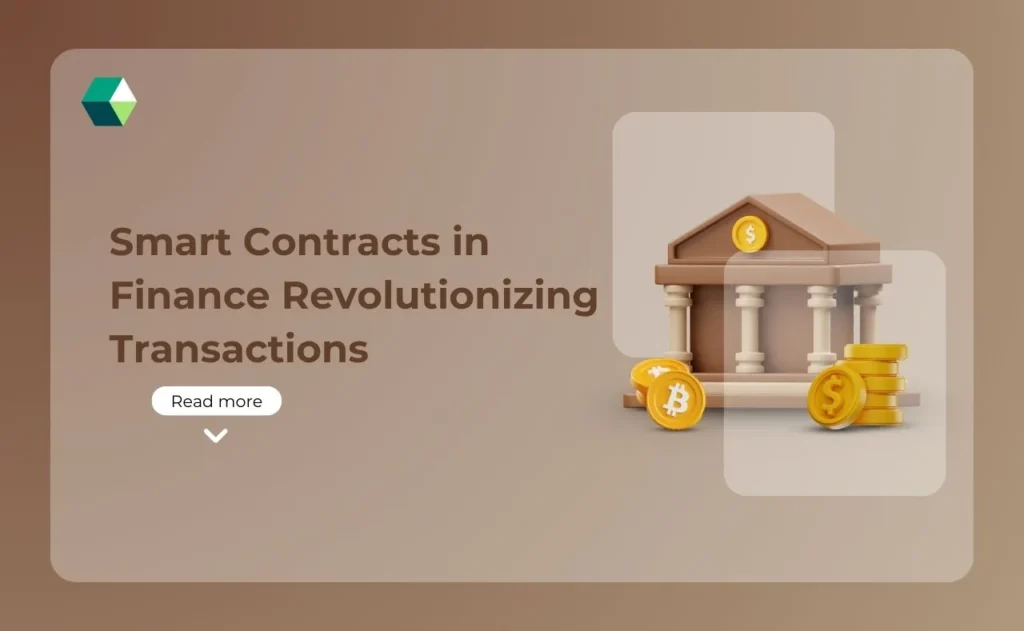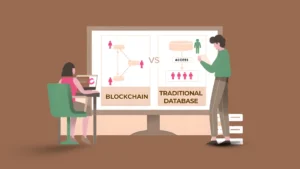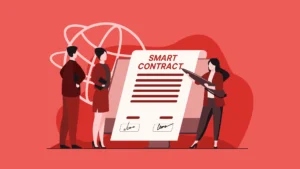
The Future of Finance Through Smart Contract Technology
The financial industry is changing, and blockchain is at the forefront of that change. Smart contracts are perhaps the greatest advancement under blockchain, changing how we execute, verify, and record transactions. Smart contracts have opened up many opportunities for decentralized finance (DeFi), digital assets, and safe worldwide trade by establishing automated agreements with the removal of trusted intermediaries.
This blog will focus on how smart contracts will change finance, their utilization in the DeFi ecosystems, examples of real-world use, and the importance and relevance of security and audits in utilizing smart contracts.
What Are Smart Contracts
Smart contracts are self-executing digital agreements on a blockchain. The smart contract ensures that the terms are executed automatically when conditions are met without the need for intermediaries including banks or brokers.
As an example remember if you were using a lending protocol shows that if a borrower repays the loan then the smart contract will automatically release the collateral. With these characteristics smart contracts reduce time, give auditability, and build trust in financial transactions.
Why Finance Needs Smart Contracts
The traditional finance system often lacks efficiency, can be slow, and has hidden costs. Smart contracts fix many of those problems by-
- Reducing intermediaries: Banks and third-parties are eliminated.
- Ensuring transparency: Transactions are public and recorded in ledgers.
- Improving security: Blockchain is encrypted to make manipulation almost impossible.
- Reducing costs: Less operational costs and less paperwork.
This is why DeFi and blockchain-based finance are emerging so quickly for businesses and investors.
DeFi and Smart Contracts- A Perfect Match
Decentralized finance (DeFi) relies on smart contracts. DeFi enables anyone to lend, borrow, trade, and earn interest on assets without working with traditional banks.
Important aspects of smart contracts in DeFi are-
- DeFi smart contracts coins: Tokens (like UNI, AAVE, or COMP) that are connected with smart contracts and enable governance, rewards or functions of protocol.
- DeFi smart contracts mining: Miners are able to stake tokens or add liquidity and get rewarded for it. This is one of the amazing ways that smart contracts distribute value throughout financial ecosystems.
- DeFi smart contracts example: Uniswap is an example of a decentralized exchange. Uniswap is built on an automated market maker (AMM) which means that trades won’t be dependent on exchanges. Users can swap tokens, anytime.
Smart Contract Development Companies in Finance
With the increased use of smart contracts, there is a greater demand for specialty developers. A DeFi smart contract development company with blockchain background can provide secure, scalable, and trustable solutions for organizations.
Many companies also offer DeFi smart contract development services for yield farming services that includes protocols for users to stake assets and earn passive income. These services require not only the coding but a deep feature set understanding of tokenomics, liquidity pools, and blockchain security.
Similarly, in the NFT space, working with a prominent NFT smart contract development company allows creators to tokenize assets safely and incorporate features such as royalties, fractional ownership, or cross-chain compatibility.
The Role of Security- Why Audits Are Essential
With billions of dollars sitting on DeFi platforms, security is essential. Every poorly coded contract has a high risk of getting hacked, because attackers can find vulnerabilities and drain assets. Audits are an essential part of DeFi success.
- The cost of a DeFi smart contract audit is based on contract complexity, code length, and urgency. A simple audit can cost a few thousand dollars, while it can cost considerably more for more complex protocols.
- By utilizing a reputable DeFi smart contract auditing firm, protocols can be more thoroughly tested against vulnerabilities present in smart contracts, such as reentrancy, flash loan attacks, or oracle manipulation.
Audit costs can be expensive, but they are nothing compared to the loss of a hacked protocol.
Use Cases of Smart Contracts in Finance
Smart contracts are not just concepts. They are already causing significant changes in the world.
Let’s look at some examples.
-
Decentralized Lending and Borrowing
Platforms, such as Save and Compound, allow users to lend or borrow assets quickly. All activities are covered by contracts that take care of the repayments, interest rates, and collateral.
-
Insurance and Risk Management
Smart contracts can automatically pay out insurance. For example, if flight data shows a delay, a travel insurance smart contract can trigger a payout process instead of relying on the insured.
-
Trade Finance
Internationally, trade transactions typically include several intermediaries facilitating B2B transactions. With the creation of smart contracts, smart contracts enable processes like letter-of-credit settlements to function faster, cheaper, and in a more secure manner.
-
Yield Farming and Liquidity Pools
Using a DeFi smart contract development service to create DeFi smart contracts allows users to earn passive income from yield farming. Smart contracts can distribute rewards based on established pre-conditions automatically when a user contributes liquidity.
-
NFT Finance
As NFTs continue to grow to create financial assets, a NFT smart contract development company can support the tokenization of assets like used real estate, digital art, and collectibles for fractional ownership and compliance transactions related value transfer.
Benefits of Smart Contracts in Finance
As opposed to being a trendy catchphrase, smart contracts deliver concrete economic advantages:
- Efficiency- Transactions are settled in seconds.
- A global reach- Anyone with internet access can get involved.
- A trust-less environment- There is no single controlling party to the contract.
- Lower costs- They are less reliant on expensive intermediaries.
- Transparency- Every transaction gets recorded on a permission less blockchain, which anyone can see.
Challenges and Considerations
Smart contracts have promise within finance, however there are challenges in the industry.
- Code vulnerabilities– Bugs can cause potential consumers losses in the value of millions.
- Scalability– High transaction volumes can cause some block chains to slowdown.
- Legal framework– Many jurisdictions have yet to clarify how smart contracts will fit into traditional legal frameworks.
- Audit costs– The cost of auditing the DeFi smart contracts can add up with any startup (audit cost range is significant), but it’s still a necessary cost to incur.
Businesses need to work with an associative DeFi smart contract development company that understands the technical and regulatory landscape to address any challenges.
Smart Contract Security Best Practices for Finance
When building a DeFi platform or launching a financial product, following best practices from a safety and sustainability perspective ensures that:
- Keep code simple – the more complex your code, the higher chance of an error occurring!
- Surround yourself with professionals – utilize a professional DeFi smart contract auditing firm to do an independent review.
- Use established libraries – using frameworks such as OpenZeppelin reduces security risks.
- Keep monitoring – even after launch, you need to keep monitoring for any unusual activity.
- Remember transparency – share your audit report and always maintain the community trust.
The Future of Smart Contracts in Finance
The evolution of financial innovation will fall into the hands of smart contracts. There are limitless opportunities for the future of finance; from central bank digital currencies (CBDCs) to tokenized real estate or AI-led DeFi platforms.
As adoption ramps up, businesses will increasingly desire-
- Trust and reliability when it comes to DeFi smart contract auditing firms.
- DeFi smart contract development that specializes in custom solutions.
- Cost-effective audit services after a quick solution in the interest of providing safe innovation.
- Top NFT smart contract development firms to integrate digital assets into their main financial products.
Smart contracts are now a reality, not an idea, and they are reshaping the future of global finance.
Building Trust Through Secure Smart Contract Development
In finance, smart contracts are transforming how transactions are conducted providing automation, transparency, and cost savings. Smart contracts are the engine for DeFi, NFTs, yield farming, and many other initiatives.
For companies, the development of smart contracts is only the first step to the journey. It’s essential to invest in the proper audits, select an associative DeFi smart contract development company, and keep security as the top priority, to ensure the creation of sustainable financial solutions.







